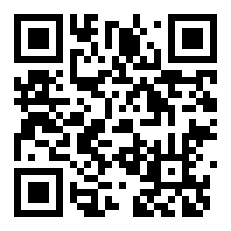Evaluation Of The Knowledge, Attitude And Practices (Kap) Of Community Pharmacists Towards Herbal Medicinal Products (Hmps) In Some South-South States Of Nigeria
Keywords:
Community Pharmacists, herbal medicinal products, knowledge, South-South zone, NigeriaAbstract
Background
The global increase in the use of herbal drugs partly stems from the misconception that natural means “safe or risk-free”. In order to provide optimal pharmaceutical care to patients taking herbal medicinal products (HMPs), pharmacists who are the link between patients and medications need to be versed in the pharmacology, safety and counselling on rational use of herbal products.
The objectives of this study were to assess the knowledge, attitude and counselling practices of community pharmacists towards HMPs.
Methods
The study was carried out in Community pharmacies in the capital of 3 states in South- South zone of Nigeria.
Data was collected using self-administered questionnaires which were distributed to community pharmacists in the capital of three (3) states of the South-South zone of Nigeria Uyo, Calabar and Port Harcourt. Data analysis was done using SPSS version 17. Descriptive statistics were used to quantify the major findings of the study. Responses from the 3 states were compared using t-test, ANOVA and chi square where appropriate.
Results
Most community pharmacists sold HMPs and confirmed that clients seek information on these products which pharmacists should provide. There was limited knowledge especially in the area of dosage, side effect and interactions of some selected HMPs (Gingko, Garlic and Ginseng) but knowledge of indication was quite high. The few respondents (16%) that had some post-graduation training had better knowledge of HMPs than others. An overwhelming 88% of the respondents were interested in updating their knowledge of HMPs. There was deficiency in regulation and safety monitoring of HMPs. A significant difference in counselling patterns existed between orthodox drugs and HMPs (p<0.05). There was no significant difference in the knowledge and counselling patterns of pharmacists in the 3 state capitals (P>0.05).
Conclusion
Community pharmacists have limited knowledge of HMPs but are eager to update their knowledge. Patients on orthodox drugs receive better counselling than those on HMPs. The knowledge and counselling patterns of pharmacists in the different states are similar. There is urgent need to embrace herbal pharmacovigilance.
References
Woo CJ, Han lau JS, El-nezami H. (2012) Herbal Medicine: Toxicity and Recent Trends in Assessing Their Potential Toxic Effects. Advances in Botanical Research 62: 366-383
World Health Organisation (2008): Traditional medicine: WHO Fact sheet N°134. Available at: http://www.who.int/mediacentre/factsheets/fs134/en/ accessed on September 13, 2012.
European Medicines Agency (2010) Reflection paper on stability testing of herbal medicinal products and traditional herbal medicinal products EMA/HMPC/3626/2009 available at www.ema.europa.eu Accessed May 23rd 2015
Hussain K, Majeed MT, Ismail Z, Sadikun A, Ibrahim P. (2009) Complementary and alternative medicine: Quality assessment strategies and safe usage. Southern Med Review 2 (1):19-23
National Drug Policy published by Federal Ministry of Health Nigeria, in collaboration with World Health Organisation 2005.
WHO guidelines on safety monitoring of herbal medicines in pharmacovigilance systems 2004. Available at http://apps.who.int/medicinedocs/documents/s7148e/s7148e.pdf; accessed on September 13, 2012.
Lin,H-W, Simon Pickard, A. Mahady, GB and Nicholas G. Popovich.(2007) Conceptual Development of a Measure to Assess Pharmacists’ Knowledge of Herbal and Dietary Supplements American Journal of Pharmaceutical Education 72 (3): 59.
Lin H-W, Pickard AS, Mahady GB, Karabatsos G, Crawford SY, Popovich, NG.(2010) An Instrument to Evaluate Pharmacists’ Patient Counseling on Herbal and Dietary Supplements. American Journal of Pharmaceutical Education 74 (10): Article 192.
Duraz AY, Khan SA.(2011) Knowledge, Attitudes and Awareness of Community Pharmacists towards the Use of Herbal Medicines in Muscat Region. Oman Medical Journal 26(6):451-453
Klepser, TB, Klepser ME. (1999) Unsafe and potentially safe herbal therapies. Am J Health Sys Pharm 56: 125-138
Miller LG, Hume A, Harris IM. (2000) White paper on Herbal products. American college of clinical pharmacy. Pharmacotherapy 20: 877-891
Adisa F, Fakeye T. (2006) Assessment of the Knowledge of Community Pharmacists Regarding Common Phytopharmaceuticals Sold in South Western Nigeria. Tropical Journal of Pharmaceutical Research, December 5 (2): 619-625
Abahussain NA, Abahussain EA, Al-Oumi FM. (2007) Pharmacists’ attitudes and awareness towards the use and safety of herbs in Kuwait. Pharmacy Practice 5(3): 125-129.
Boon H, Hirschkorn K, Griener G, Cali M. (2009) The ethics of dietary supplements and natural health products in pharmacy practice: a systematic documentary analysis. Int J Pharm Pract. 17(1): 31-8.
Chang ZG, Kennedy DT, Holdford DA, Small RE.(2000) Pharmacists' knowledge and attitudes toward herbal medicine. Ann Pharmacother. 34(6): 710-5.
Kemper KJ, Amata-Kynvi A, Dvorkin L, Whelan JS, Woolf A, Samuels RC, Hibberd P. (2003) Herbs and other dietary supplements: healthcare professionals' knowledge, attitudes, and practices. Altern Ther Health Med. 9(3): 42-9.
Alkharfy KM. (2010) Community pharmacists' knowledge, attitudes and practices towards herbal remedies in Riyadh, Saudi Arabia. East Mediterr Health J. 16(9): 988-993.
Shetti S, Kumar CD, Sriwastava, NK, Sharma IP. (2011) Pharmacovigilance of herbal medicines: Current state and future directions. Pharmacogn Mag. 7(25): 69–73.
Shaw D, Graeme L, Pierre D, Elizabeth W, Kelvin C. (2012) Pharmacovigilance of herbal medicine. Journal of Ethnopharmacology 140 (3): 513– 518
Olatunde S, Boon H, Hirschkorn K, Welsh S, Bajcar J. (2010) Roles and responsibilities of pharmacists with respect to natural health products: key informant interviews. Res Social Adm Pharm. 6(1): 63-9.
Hepler CD, Strand LM. (1990) Opportunities and responsibilities in pharmaceutical care. Am J Hosp Pharm. 47(3): 533-543.
Clauson KA, McQueen CE, Shields KM, Bryant PJ. (2003) Knowledge and Attitudes of Pharmacists in Missouri Regarding Natural Products. American Journal of Pharmaceutical Education 67 (2): 41.
Hussain S. (2011) Patient Counseling about Herbal-Drug Interactions. Afr J Tradit Complement Altern Med. 8(5S): 152–163

Downloads
Views | PDF Downloads:
432
/ 158


